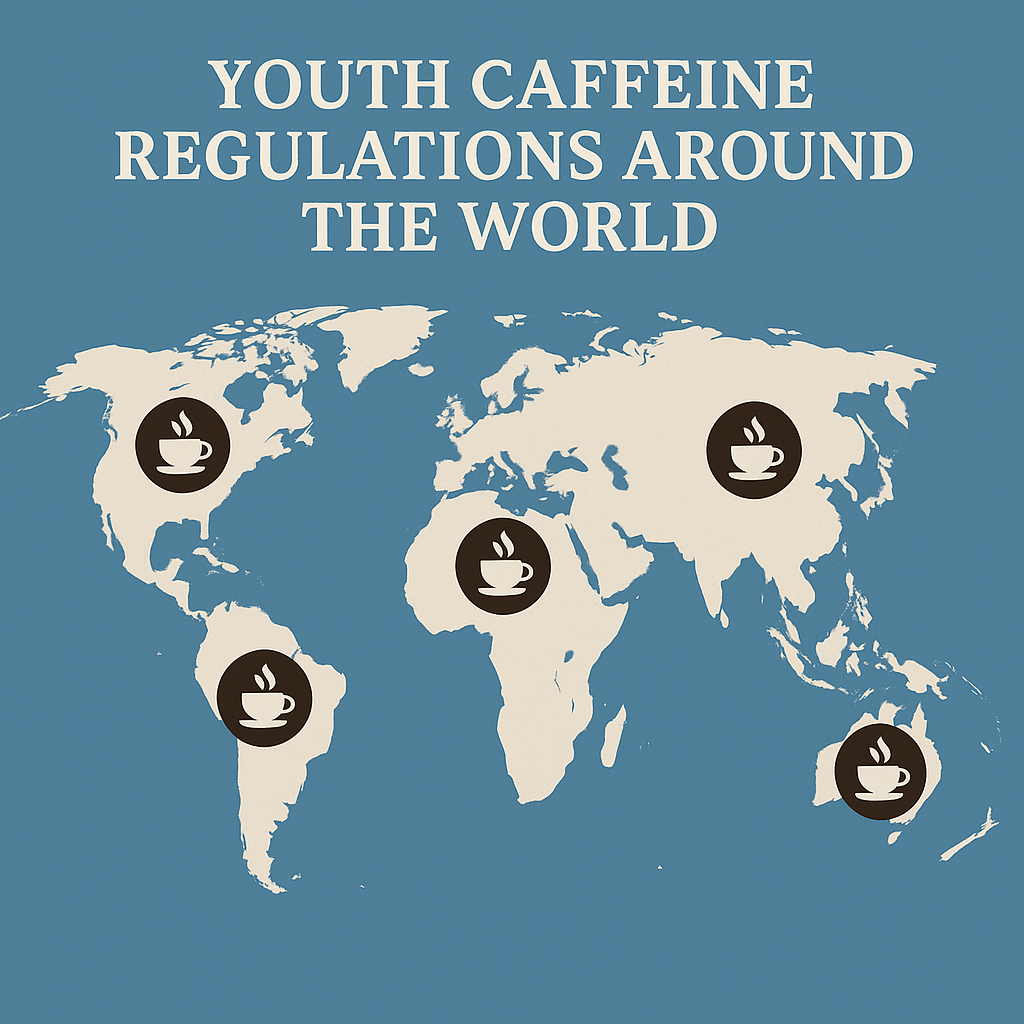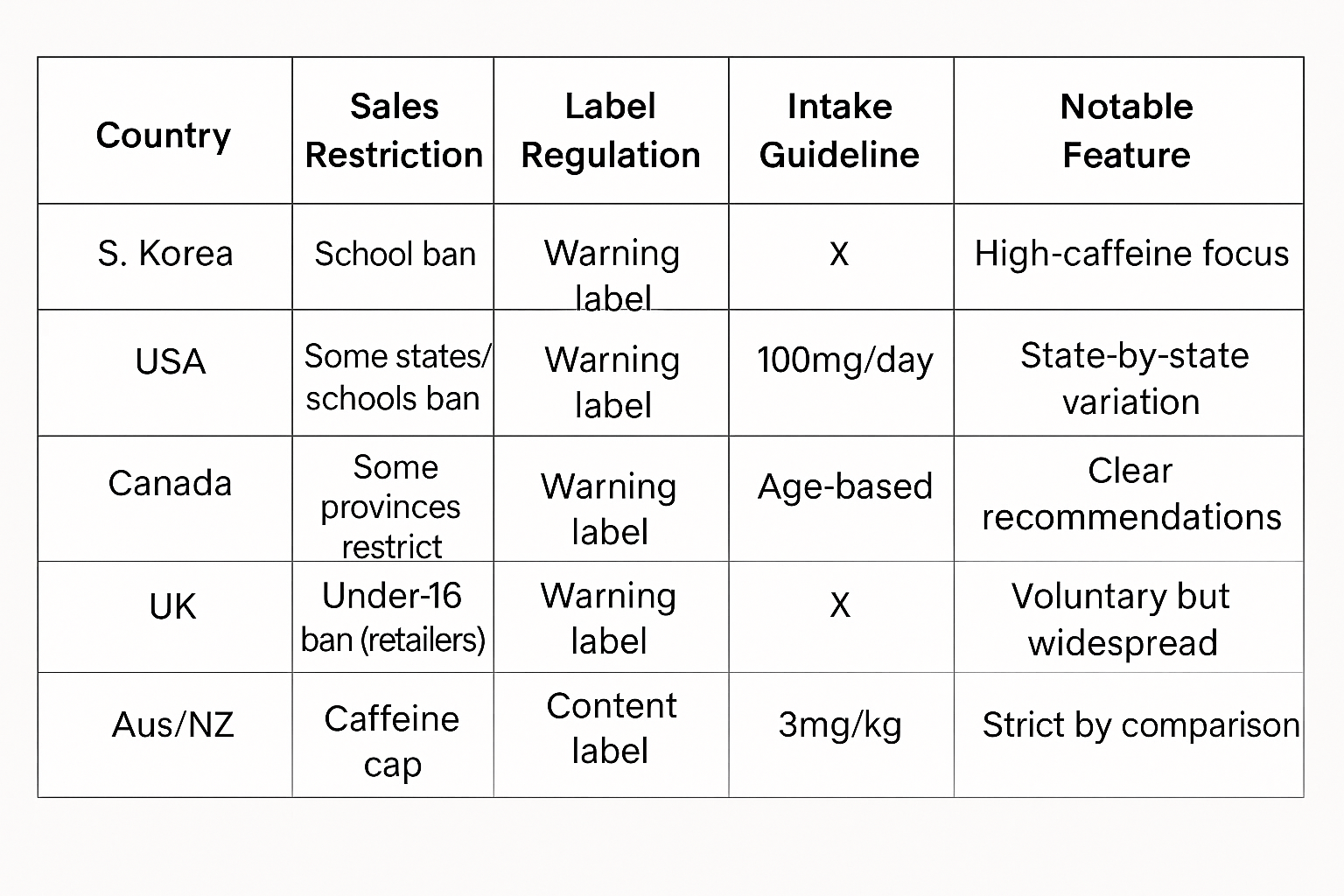Youth Caffeine Regulations Around the World
Written by Eunseo Whaong
Why Regulate Teen Caffeine Consumption?
Teenagers have lower body weight and a slower caffeine metabolism compared to adults, which increases the risk of side effects.
These can include heart palpitations, anxiety, sleep disturbances, and reduced concentration.
For this reason, some countries have implemented policies such as age-based sales restrictions, mandatory warning labels, and advertising regulations.
Country-by-Country Overview
🇰🇷 South Korea
No legal minimum age for caffeine sales
Ban on high-caffeine beverage sales in primary, middle, and high school stores
Warning labels required for beverages containing more than 0.15% caffeine
🇺🇸 United States
No federal age restriction on caffeine sales
Some states/schools restrict energy drink sales
FDA recommends: Maximum 100mg/day for ages 12–18
🇨🇦 Canada
Age-specific caffeine intake guidelines exist
Some provinces (e.g., British Columbia) ban sales in schools
Energy drinks must display "Not recommended for children"
🇬🇧 United Kingdom
Ban on energy drink sales to under-16s (major retailers)
Voluntary regulation but widely adopted nationwide
“High caffeine” warning label required
🇯🇵 Japan
No legal sales restrictions
Caffeine content labeling required for energy drinks and coffee products
Culturally more lenient toward teen caffeine intake
🇦🇺 Australia & 🇳🇿 New Zealand
Caffeine limit for energy drinks: 320mg/L
“High caffeine” label required
Recommended teen intake: ≤3mg per kg of body weight
At-a-Glance Comparison
What’s Behind These Numbers?
Looking at this chart, you can see how each country takes a different approach to youth caffeine consumption. In South Korea, you won’t find high-caffeine drinks in school stores, while the UK’s big retailers won’t sell energy drinks to anyone under 16. The U.S. leaves it mostly up to each state, so rules can vary a lot. Canada stands out with clear age-based recommendations, and Australia/New Zealand keep things strict with an official caffeine cap per drink. On the other hand, Japan is more relaxed—there’s no sales restriction, but labels must show caffeine content.
Conclusion
Global teen caffeine regulations range from strict legal enforcement to voluntary guidelines.
However, a common trend is increasing awareness of the risks and expanding measures such as school sales bans and warning labels in major retail channels.
What do you think?
Should teen caffeine sales be legally restricted, or should it be left to personal choice? Share your thoughts in the comments!

